Symposium Keynote Speakers
Symposium 1. Current status and management methods of outbreak organisms
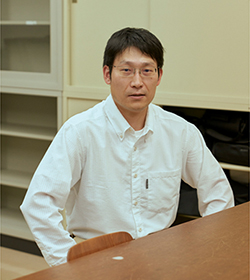
Dr. Kazuki Sekine / Junior Associate Professor, Faculty of Geo-Environmental Science, Rissho Universi
Synchronized mass emergence and geographic parthenogenesis of the polymitarcyid mayfly, Ephoron shigae
Research: Biodiversity, molecular phylogeography and evolutionary ecology of aquatic insects.
I am particularly interested in the geographic parthenogenesis of the mass-emergence mayflies, Ephoron shigae. I also study the diversity and reproductive biology of the genus Ephoron using molecular phylogenetic analysis and cytological and histochemical tools.
Symposium 2. Biological Collections in the Digital Age: Challenges and Opportunities
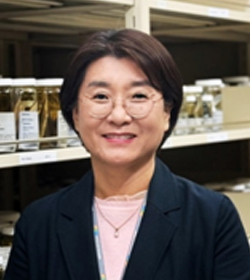
Dr. Kyongin Suh / Director of Biological Specimen Conservation Division, Nakdonggang National Institute of Biological Resources
Digital conservation and utilization of Biological Collections: Focusing on the NNIBR cases
Dr. Kyongin Suh, an expert in insect systematics, has been responsible for the preservation of freshwater biological specimens and the management of storage facilities at the Nakdonggang National Institute of Biological Resources since 2017. Her current focus is on archiving the morphological information of biological specimens, which inevitably changes over time, through digitization. Additionally, she is dedicated to enabling the free sharing of specimen information online by developing and applying various digital imaging technologies.
Symposium 3. Applying the latest strategy to manage harmful algal blooms in waterbody
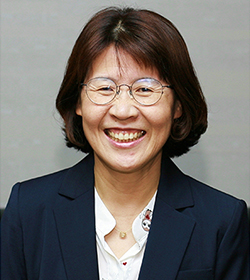
Dr. Hee Suk Lee / Water Environmental Management Department, K-water
Applying the latest technology to manage Harmful Algal Blooms in waterbody
Dr. Hee Suk Lee is in charge of management and control of harmful algal blooming (HAB) and development of HABs Technology under Water Environmental Management Department of K-Water since 2010. Her current research encompasses technical support for water analysis and phytoplankton analysis and projects on biofilm of distribution systems and phytoplankton removal. For this symposium, she will present on her topic regarding utilization of the latest technology for HAB management.
Symposium 4. Strategies for various disease vector management
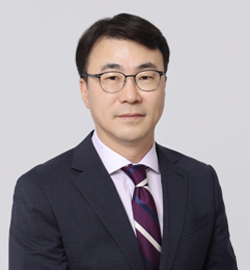
Prof. Hyung Wook Kwon / Incheon National University
Implementation of Big Data to Control Disease Vector Mosquitoes
Professor Hyung-Wook Kwon earned B.Sc. and M.Sc. degrees in Entomology and Pest Control from Seoul National University, followed by a Ph.D. in Entomology and Molecular Neurobiology from the University of Arizona. Currently, he is an Associate Professor at Incheon National University. Additionally, he is the Director of the Convergence Research Center for Insect Vectors at Incheon National University. In his presentation “Implementation of Big Data to Control Disease Vector Mosquitoes,” Professor Hyung Wook Kwon from Incheon National University discusses the critical role of big data in managing vector-borne diseases such as dengue, Zika, and malaria, which are exacerbated by climate change and global mobility. He emphasizes the importance of swiftly and accurately identifying mosquito species like Aedes, Anopheles, and Culex, which are essential for effective vector control. Professor Kwon will explore how leveraging genomic data and AI-based analytics can advance the monitoring of mosquito population dynamics and enhance disease prevention strategies in an environmentally sustainable manner.
Symposium 5. Optimizing water, food, energy, and ecosystem nexus in the 3rd pole region of the Mid Latitude Region
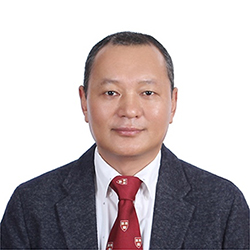
Dr. Sonam Wang / Research Professor at Korea University
3rd Pole in Crisis: Opportunities, Challenges, and Climate actions.
Dr. Sonam Wang, a Research Professor at Korea University since 2016, brings extensive experience from roles such as Associate Professor at Royal Thimphu College and research associate at esteemed institutions like University of Oxford and the Smithsonian Institution. He holds a Ph.D. supervisor certification from Queensland University of Technology and has mentored students globally, including at Cornell University and the Wildlife Institute of India. Professionally, he served as Director of Bhutan’s Royal Education Council and founded organizations like the Bhutan Institute of Himalayan Studies. His research focuses on advancing sustainable development goals, particularly in Asia’s High Mountains, integrating ecology, conservation biology, and public policy. Despite humble beginnings, he holds degrees from Cornell University, University of Oxford, and Harvard University, and provides consultancy services to governments, UNDP, and private sectors. In his leisure time, Dr. Wang enjoys hiking.

